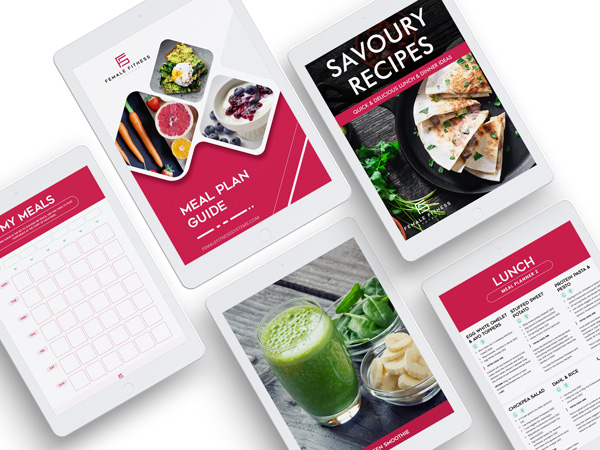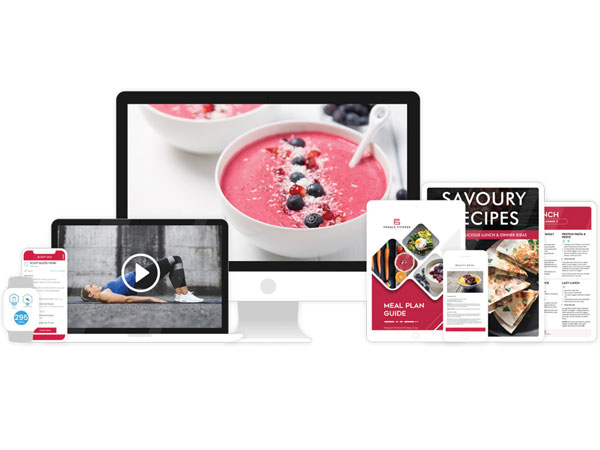If snacking is your downfall or you just feel confused as to what you should be eating, fixing these common mistakes will help you balance your meals throughout the day. Let’s talk about how to snack like a pro.
If you prefer to watch rather than read:
Snacking Mistake #1: Your snacking mindset is wrong.
The first mistake when it comes to snacking has to do with the way you think about it.
The definition of snacking is “eating small amounts of food between regular meals.” You can understand why if you think about snacking in that way, you will struggle. The little bits of food you have between meals or the unplanned snacks add up. For example, if you are someone who comes home from work and picks at food here and there until dinner time, you are taking in a lot of unnecessary calories. Essentially you are snacking to fill some kind of void without a real, identified purpose.
Instead of thinking about eating small amounts of food between your meals, you need to think about snacking as a meal itself. It should also have a purpose, which we will talk about shortly. Most people break their day down like this:
- Breakfast
- Lunch
- Dinner
- 1-2 Snacks
In the fitness industry, it’s common to break your day down like this:
- Meal 1
- Meal 2
- Meal 3
- Meal 4 (etc)
When you think in terms of meals, as shown in the second example above, you tend to make better decisions and it eliminates “picking” at food when you shouldn’t be eating. Meals tend to be larger than snacks so they are more satiating and they have a purpose. For example, breakfast has a purpose – it breaks the overnight fast. Dinner has a purpose – it refuels you at the end of a long day or after a workout and before bed.
If you are going to eat, ask yourself:
What is the purpose of this meal?
-to bridge between lunch and dinner?
-to fuel for a workout?
-to refuel after a workout?
Just by asking those questions you are more likely to make better decisions. And remember a meal is contained to one short period of time when you sit down and eat, and then the meal is over (as opposed to snacking which often doesn’t have a defined end).
Mistake #1 Fix: Think about having a set number of meals throughout the day, rather than “snacking.”
Snacking Mistake #2: You aren’t building your meals around protein.
So now we are talking about meals rather than snacks which makes the rest of this article a bit awkward because I need to change the terminology. From now on I will talk about the “snack meal” just to be clear we are still talking about “snacking” but we are now thinking of it as being a “meal.”
The second mistake you are making when it comes to the “snack meal” is not building it as you would a proper meal and, in particular, not focusing on protein. One of the most simple things I try to get all my ladies to do in order to improve their nutrition is building their meals around protein. In doing so, you will make much better choices and you’ll feel better throughout the day. The same rule applies for your snack meal.
For example, if you build your snack meal around protein, you eliminate options such as:
- crackers/chips/popcorn
- cheese and crackers
- sweets, scones, muffins, breads
- yoghurt
- nuts.
You are probably thinking that some of those snack aren’t too bad. For example. what about some yoghurt and nuts which is a very common choice? The problem is that, while there is some protein in both, there’s just not enough protein. It’s not a terrible choice, but it could be so much better.
Here’s why you should focus on protein:
–When you have a high protein meal you will stay fuller for longer. For example, when I have a full day of clients on my feet in the gym, I normally take a break at 4pm and then work until 7pm. If I don’t have a high protein meal at 4pm, I will be starving by the end of the day. I can have the exact same amount of calories in the 4pm meal, but if it’s lower protein, I will crash, my stomach will rumble and I often feel cold and miserable by the time I finish.
–Most women have a hard time meeting their protein requirements. If you only eat 4 meals per day, those meals each need to have at least 25g of protein per meal to meet your basic requirements. There is a lot of evidence that you need even more protein as you get older and you need to be hitting something called a “leucine threshold” with your meals. You won’t be doing that on foods like yoghurt and nuts.
You might be wondering what the heck you should be having for a “snack meal” if you don’t want to be eating meat every meal. This is where protein powder is very useful. You can build some very healthy, delicious options around protein powder, including protein shakes, smoothie bowls and protein pancakes.
Mistake #2 Fix: Aim for at least 25g of protein per meal, including your “snack meal.”
If you want some help building better meals, including “snacks” check out my Meal Plan here.


Snacking Mistake #3: Not planning when and what you’ll eat.
As we’ve discussed, meals usually have a set time and purpose, and your snack meal should be the same. So let’s say, for example, you workout at 3pm and you don’t eat dinner until around 7:30pm. Then you need a meal in between the workout and dinner to refuel and bridge that gap until dinner. The purpose of the meal is to replenish after the workouts so it needs to be timed post-workout – maybe around 4:30, and it needs to have enough protein and calories to replenish your muscles post training. Having a set time for the meal should stop you from picking at food randomly and it eliminates the need for you to think about it, which is very important when it comes to willpower.
You should also choose two “go to snack meals” so that you eliminate the need for willpower. Why two? It’s just easier, but you can have a couple more if you like. However, the most important thing is that you have those “go to” meals so that you eliminate the need to choose when you are hungry at the end of the day (or when you are bored at work, etc). Willpower is finite and it runs out as the day goes on. Think about all the willpower you use throughout the day – getting up on time, getting to work on time, organizing the kids, staying focused in meetings, being nice to coworkers, going to the gym…
Researchers call this “decision making fatigue.” By the end of the day you’ve used up your willpower and it is much harder to make good decisions. That’s why having a plan for when and what you will eat is so important. You don’t want to have to think about it!
Mistake #3 Fix: Have a plan for when and what you’ll eat for every meal of the day. Eliminate the need to make choices especially when you are tired, bored or busy.
Ready to start making changes and have long term results? Be sure to check out my programs.
Learn more about my most popular Over 40 Transformation Program.

